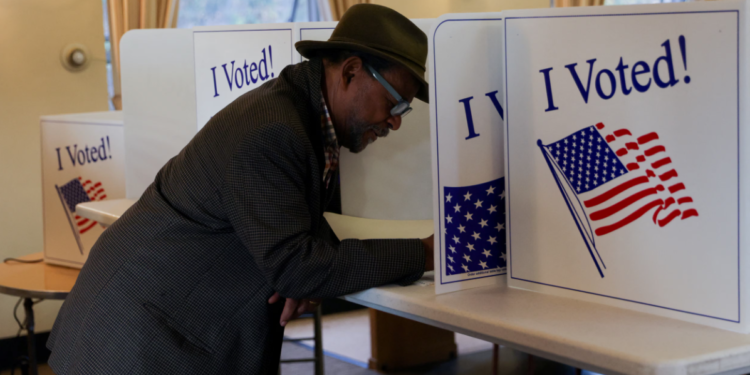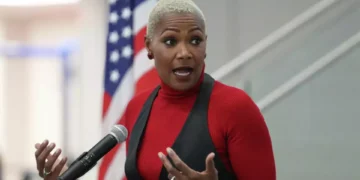Nov 16, 2024 Story by: Editor
In Michigan, Vice President Kamala Harris and the Democratic Party faced notable challenges in retaining Black voter support during the 2024 election. Despite efforts to reverse the waning allegiance of Black voters to the party, Harris and her campaign witnessed a 2-percentage-point drop in support among Black voters compared to the 2020 election, as per exit polls. This decline coincided with a 2-point increase in support for former President Donald Trump among the same demographic, underscoring a shifting dynamic in this key battleground state.
Black Voter Trends in Michigan
In 2020, Joe Biden secured 92% of the Black vote in Michigan, leaving Republicans with just 7%. However, by 2024, Harris could only muster 90% support, with Trump claiming 9%. Analysts point to growing frustrations among Black voters over perceived insufficient returns for their consistent support of the Democratic Party. This sentiment appears to have been amplified by controversial issues like the U.S. stance on Israel’s war on Gaza, which influenced public opinion in communities across the state.
Efforts by Harris to Rebuild Support
As pre-election surveys revealed dissatisfaction among Black voters, Harris ramped up her campaign efforts with targeted outreach initiatives and support from prominent figures like former President Barack Obama. Harris introduced an “opportunity agenda for Black men,” proposing $1 million in forgivable small business loans to bolster economic opportunities. Yet, these measures fell short of resonating deeply with voters in Michigan.
Obama, a key campaign ally, attempted to rally support by addressing Black voters’ hesitation. However, his approach in Pennsylvania, where he rebuked Black men for their lack of enthusiasm, was met with criticism. Author Ta-Nehisi Coates remarked, “When you are trying to get a group of people to support you, you appeal to them. You don’t chide them, humiliate them, and vent your anger at them.”
Trump’s Strategy and Gains
Trump’s rise in Black voter support, including in Michigan, can be partly attributed to his narrative of economic progress during his presidency and his controversial framing of his legal troubles. He claimed that the injustices he faced resonated with African Americans, who have historically encountered systemic discrimination. Despite skepticism over this argument, Trump managed to secure endorsements from prominent Black celebrities, including Kanye West and Lil Wayne, bolstering his appeal among younger Black voters.
The Broader Picture for Democrats
Harris’s challenges in Michigan highlight a broader trend of declining Black voter loyalty to the Democratic Party. As exit polls revealed, the overall share of Black voters identifying as Democrats dropped significantly in recent years, reflecting growing disillusionment, particularly among younger voters. These shifts underscore the urgent need for Democrats to re-evaluate their strategies to maintain their historically strong support base among Black Americans.
In Michigan and beyond, the 2024 election served as a stark reminder that long-standing political alliances are no longer guaranteed. Source: Al Jazeera

















